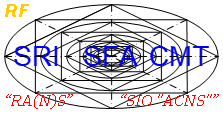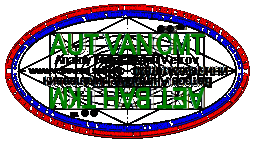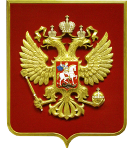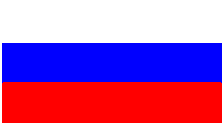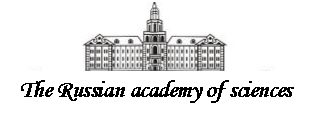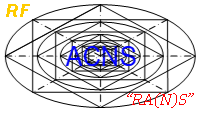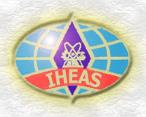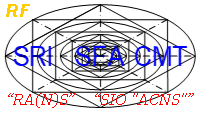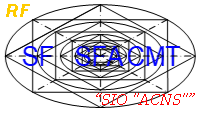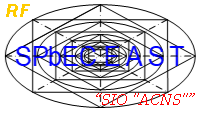“The Ist international scientific conference on fundamental sciences
"Actual problems of modern science and technology: cognitive approach"” (the 01st-31st of March 2015 y.)
(page 1 from 1 pages)
The fundamental scientific researches branch 1.
“Cognitive modeling in the mathematical sciences” (“OMN”)
The salutatory word
on the branch “Cognitive modeling in the mathematical sciences” (“OMN”)
of “SIO "ACNS"” (day time session)
The place of carrying out, room, date and interval of time
RF, Saint-Petersburg city, “SIO "ACNS"”, from the 01st of January 2015 y. 00:00:00 to the 01st of March 2015 y. 23:59:59
|
№
|
UDC
of scientific report
and (or) multimedia-presentation
|
First name,
Middle initials, Last name,
scientific degree, scientific rank,
(name of academy of sciences
or HEI which has issued diploma),
post in organization,
country, city, organization,
WWW address and E-mail address
of the author of scientific report
and (or) multimedia-presentation
|
Name (nomen)
of scientific report
and (or) multimedia-presentation
|
URL
of scientific report
and (or) multimedia-presentation
|
|
1.
|
UDC
|
Vetrov Anatoly Nikolaevich,
academician of (natural) sciences
(“SIO "ACNS"”),
The President
of “SIO "ACNS"”,
RF, Saint-Petersburg city,
“SIO "Academy of cognitive
natural sciences"”,
www.vetrovan.spb.ru,
vetrovan@nwgsm.ru
|
“The fundamental scientific researches branch
“Cognitive modeling
in the mathematical sciences” (“OMN”)
of “SIO "Academy of cognitive
natural sciences"””
(scientific report)
|
(download)
|
The salutatory word of the invited
on the branch “Cognitive modeling in the mathematical sciences” (“OMN”)
of “SIO "ACNS"” (day time session)
The place of carrying out, room, date and interval of time
RF, Saint-Petersburg city, “SIO "ACNS"”, from the 01st of January 2015 y. 00:00:00 to the 01st of March 2015 y. 23:59:59
The scientific reports and (or) multimedia-presentations on fundamental sciences did not give
The open performances with scientific reports and (or) multimedia-presentations
on sections of “SIO "ACNS"” (residents and non-residents)
3.1.1. The fundamental scientific researches section
“The theory of mathematics and complex system analysis
based on cognitive modeling technology” (“SM”)(*)
Þ The theoretical mathematics (*) – the general questions of theoretical mathematics,
theory of mathematical logic, theoretical bases of mathematics,
theory of numbers, theory of algebra, theory of topology, theory of geometry, theory of the mathematical analysis,
theory of functions of valid variables, theory of functions of complex variables,
theory of ordinary differential equations,
theory of differential equations with private derivatives, theory of integrated equations,
theoretical mathematical models of objects, processes and phenomena of natural sciences and technical sciences,
theory of equations of mathematical physics, theory of variation calculus,
mathematical theory of optimum control, theory of the functional analysis, theory of calculus mathematics,
theory of probability and mathematical statistics, theory of the combinatory analysis,
theory of graphs, theory of mathematical cybernetics,
theory of representation ways of cognitive models, theory of parametrical cognitive models block,
theory of cognitive modeling technology in theoretical mathematics;
Þ The theoretical complex system analysis (*) – the general questions of the theoretical complex system analysis,
theory of tendencies, dependences and laws of the complex system analysis of objects, processes and phenomena,
theory of cognitive modeling technology with dynamic cloning, verification and subverification,
theory of iterative cycle and technique of use of cognitive modeling technology
for the complex system analysis of difficult objects, processes and phenomena,
theory of parametrical cognitive models block for the complex system analysis
and increase of functioning efficiency of difficult objects, processes and phenomena,
theory of cognitive model structure of the 1st and 2nd generations,
theory of representation ways of structure of cognitive model and difficult problem environments:
formal classical of the 0th generation (logical and production models),
nonformal classical of the 0th generation (semantic network, frame network and ontology),
formal new of the 0th generation (calculus of theory of sets and corteges on domains
and innovative calculus of theory of sets and graphs),
nonformal new of the 0th generation (multilevel structural scheme
and multilevel encapsulated pyramids combining theory of graphs and theory of sets),
flat of the 1st generation (cognitive disc and cognitive circle),
volumetric of the 1st generation (cognitive cylinder, cognitive cone and cognitive sphere),
flat and volumetric of the 2nd generation (one-, two-, three-, four-, five- and more cognitive disc,
cognitive circle, cognitive cylinder, cognitive cone and cognitive sphere),
hybrid of the 3rd generation (combinations of the existing cognitive models),
theory of algorithms of formation of structure of difficult cognitive models of the 0th, 1st, 2nd and 3rd generations,
theory of techniques of parameters research of difficult cognitive models of the 0th, 1st, 2nd and 3rd generations,
theory of algorithm of a posteriori data processing of the complex system analysis of difficult problem spheres,
theory of software for automation of research tasks,
theory of statistical substantiation of practical use of received results,
theory of factors influencing to functioning efficiency of difficult objects, processes and phenomena,
theory of organization and plan of carrying out of experimental research of cognitive models parameters,
theory of preliminary processing of a posteriori results of diagnostics,
theory of choice of the statistical analysis methods of generated a posteriori data sets,
theory of the analysis of productivity dynamics of difficult objects, processes and phenomena,
theory of the dispersion analysis, the regression analysis, the discriminant analysis, the cluster analysis,
multivariate scaling, the factor analysis, theory of bibliographic lists,
the theoretical complex system analysis of basic rocket engine,
the first, the second, the third and the fourth rocket engine of the launch vehicle,
the theoretical complex system analysis of multivariate code device,
the theoretical complex system analysis of modificated model of reduced eye for research
of visual acuity, field of vision and color perception in Descartes space of 2 and 3 coordinates,
the theoretical complex system analysis of chemical element with one-, two-, three-, four-, five- and more nucleus,
the theoretical complex system analysis of difficult multivariate hurricane and others.
The place of carrying out, room, date and interval of time
RF, Saint-Petersburg city, “SIO "ACNS"”, from the 01st of January 2015 y. 00:00:00 to the 01st of March 2015 y. 23:59:59
The reporters on the fundamental scientific researches section
“The theory of mathematics and complex system analysis
based on cognitive modeling technology” (“SM”)(*)
The scientific reports and (or) multimedia-presentations on fundamental sciences did not give
3.1.2. The fundamental scientific researches section
“The theory of cybernetics and (cognitive) computer science” (“SPMI”)(*)
Þ The theoretical cybernetics – the general questions of theoretical cybernetics,
theory of automatic control systems,
theory of modeling, theory of cybernetic control systems,
theory of information, theory of artificial intelligence,
theory of discrete (final) automatic devices and formal programming languages,
theory of reliability, theory of the system analysis,
theory of cognitive modeling technology in theoretical cybernetics;
Þ The theoretical computer science – the general questions of theoretical computer science,
theory of organization of information work, theory of documentary information sources,
theory of analytical-synthetical processing of documentary information sources,
theory of information search, theory of information service,
theory of technical means of information processes support,
theory of cognitive modeling technology in theoretical computer science;
Þ The theoretical cognitive computer science (*) – the general questions of theoretical cognitive computer science,
the theory of stratified-step model of perception (psycho-physiology of perception), processings (cognitive psychology)
and understanding (cognitive linguistics) of information fragments contents,
theoretical bases of cognitive computer science and cognitive modeling technology
in technical, economical, physical-mathematical and other sciences,
theoretical bases of parametrical cognitive models block for the system analysis
of information-educational environments (cognitive models of subject of training and means of training),
theoretical bases of parametrical cognitive models block for the financial analysis
of (credit) organizations (cognitive models for the vertical, horizontal and trend financial analysis),
theoretical bases of parametrical cognitive models block
for the complex system analysis of difficult objects, processes and phenomena of cognitive computer science,
theory of representation ways of structure of cognitive models and difficult problem environments:
formal classical of the 0th generation (logical and production models),
nonformal classical of the 0th generation (semantic network, frame network and ontology),
formal new of the 0th generation (calculus of theory of sets and corteges on domains
and innovative calculus of theory of sets and graphs),
nonformal new of the 0th generation (multilevel structural scheme
and multilevel encapsulated pyramids combining theory of graphs and theory of sets),
flat of the 1st generation (cognitive disc and cognitive circle),
volumetric of the 1st generation (cognitive cylinder, cognitive cone and cognitive sphere),
flat and volumetric of the 2nd generation (one-, two-, three-, four-, five- and more cognitive disc,
cognitive circle, cognitive cylinder, cognitive cone and cognitive sphere),
hybrid of the 3rd generation (combinations of the existing cognitive models),
theory of adaptive automation means of information-educational environment
(basic and applied diagnostic module, electronic textbook,
laboratory practical work, electronic dean, electronic library and others),
theory of technical means of adaptive information interaction support
(adaptive representation of sequence of information fragments processor,
question-answers structures sequence processing processor, linguistic processor and others),
theory of technical means of the financial analysis support
(automation means of forming of working plan of accounts
for basis normative-regulated plan of accounts of accounting;
automation means of forming of accounting balance
and report on profits and losses of organization
automation means of the vertical financial analysis of organization,
automation means of the horizontal financial analysis of organization
and automation means of the trend financial analysis based on analytical coefficients system),
theory of technical means of the complex system analysis support
(automation means of forming and research of cognitive disc,
automation means of forming and research of cognitive circle,
automation means of forming and research of cognitive cylinder,
automation means of forming and research of cognitive cone,
automation means of forming and research of cognitive sphere,
automation means of forming and research
of one-, two-, tree-, fore-, five- and more cognitive sphere).
The place of carrying out, room, date and interval of time
RF, Saint-Petersburg city, “SIO "ACNS"”, from the 01st of January 2015 y. 00:00:00 to the 01st of March 2015 y. 23:59:59
The reporters on the fundamental scientific researches section
“The theory of cybernetics and (cognitive) computer science” (“SPMI”)(*)
The scientific reports and (or) multimedia-presentations on fundamental sciences did not give
“The Ist international scientific conference on fundamental sciences
"Actual problems of modern science and technology: cognitive approach"” (the 01st-31st of March 2015 y.)
(page 1 from 1 pages)

